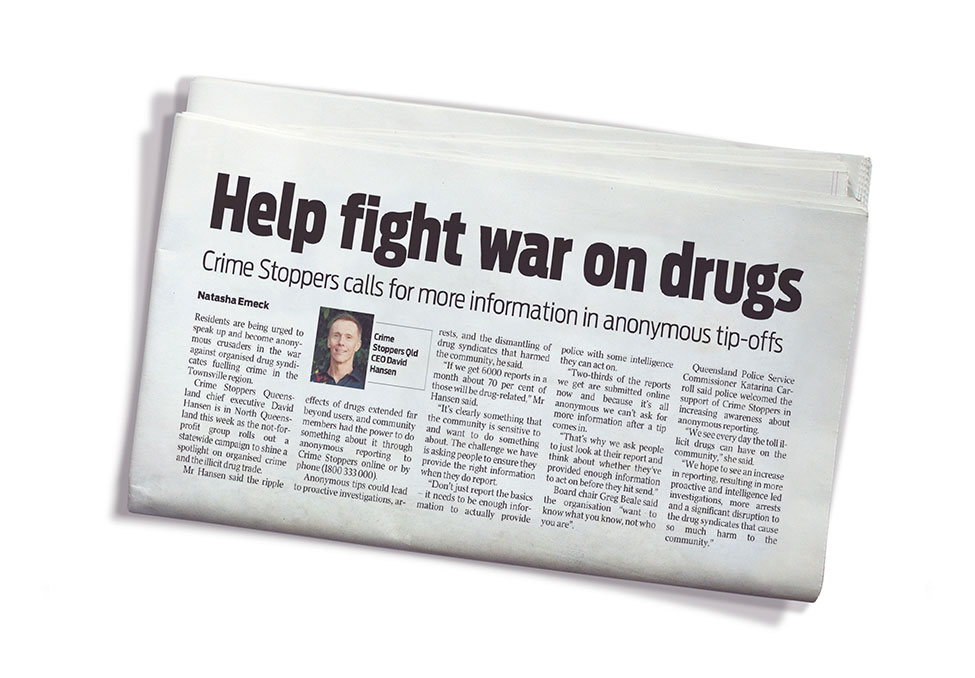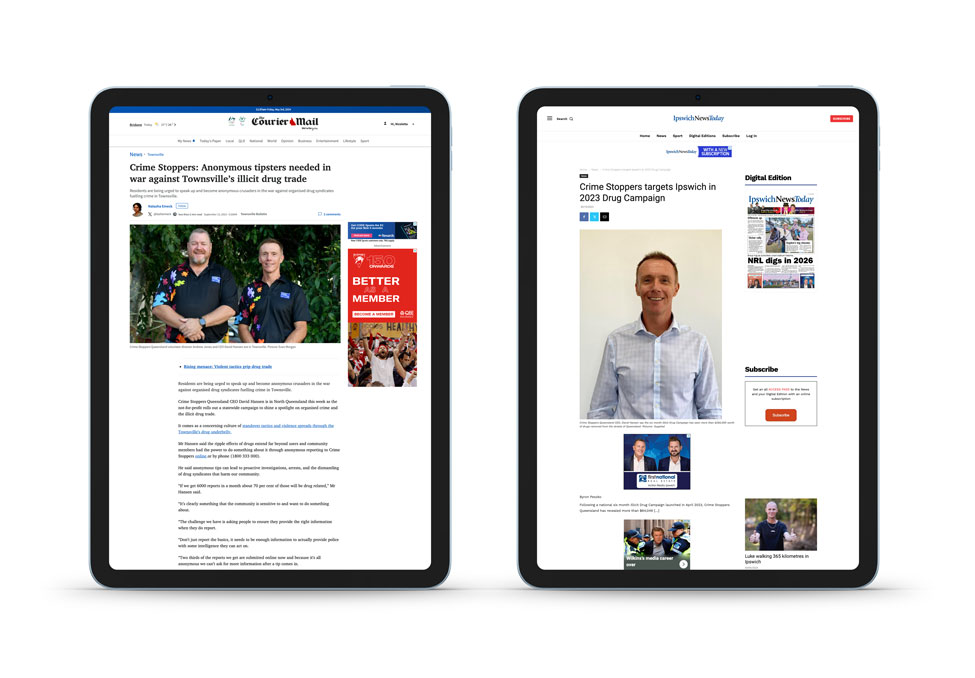Outcome:
ImpactInstitute delivered a thoughtful and strategic campaign that secured a diverse range of coverage across varying media channels.
Top-line results include:
- April launch: 126 coverage items, 5,492,721 reach
- August Mt Isa tour: 16 coverage items, 114,600 reach
- September Townsville tour: 23 coverage items, 6,978,828 reach
- October campaign wrap report: 9 coverage items, 2,316,524 reach
In total, ImpactInstitute generated an audience reach of 14,902,673 with 174 coverage items proactively generated.
Coverage was featured in outlets including 7News, 9 News, The Courier-Mail, ABC News, Triple M and more.
Throughout the campaign period there was a month-on-month increase in digital reports, and in drug arrests made by Queensland Police, demonstrating lasting positive impact.

